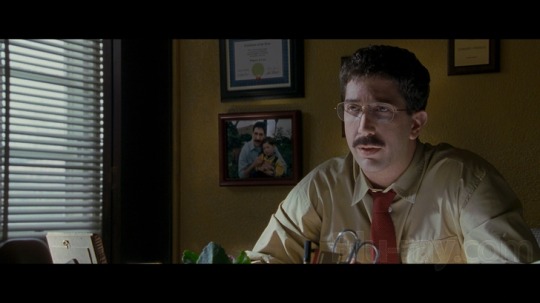#and the shorter stuff wasn’t as popular…perhaps weren’t seen as ‘serious’?
Explore tagged Tumblr posts
Text
longfic is like the once-favored, now wrongfully scorned daughter of an aging, deranged monarch that is fandom
#you know#will she ever return to us? will we ever welcome her back into our arms?#i say this mostly as a joke#but i am sorta poking at the fact that longfic no longer does nearly as well as it used to#i feel like back in the day 🚬#longfic was hailed in fandom spaces as ‘the best’ form#and people were often thrilled to find good longfic#and the shorter stuff wasn’t as popular…perhaps weren’t seen as ‘serious’?#which i don’t agree with ofc#however i do think that dynamic has switched in some way#like our attention spans time and energy are so shot now#that we prefer smaller forms of content#which is totally fine in some ways!!#however#it is a lil sad now to pour a lot of heart and love into a longfic#and have it do really REALLY poorly.#or like sad that we don’t have the attention spans time and energy to both write or read longer works#cielo rambles!
13 notes
·
View notes
Text
To everything… turn, turn, turn…
Subtitled: Fuck you Richard Bachman

My first collection of King novellas, Different Seasons, provides the source material for some of King’s most memorable film adaptations. But we’ll get to that later.
Different Seasons was published in 1982, and contains 4 novellas. Novellas are longer than a short story but shorter than a novel. Ok, you probably knew that already, so cool story.
By 1982 King was the king (lulz) of horror. Since none of these stories contain things that go bump in the night, his publishers weren’t totally stoked to print them individually. I guess novellas really suck if you’re a writer, because they’re too long for magazines to publish, and too short to be real novels. Of course, Stephen King is the fucking greatest, and he combines these four stories together, makes each (loosely) tied to a season, hits CTR+P and laughs his way to the bank (I assume).
Here’s what we go to go through:
Hope Springs Eternal - Rita Hayworth and Shawshank Redemption
Summer of Corruption - Apt Pupil
Fall from Innocence - The Body
A Winter’s Tale - The Breathing Method
There is really nothing thematically that ties these stories together. King states in the afterward that each was written shortly after finishing a novel - The Body after 'Salem’s Lot, Apt Pupil after The Shining, Shawshank after The Dead Zone, and The Breathing Method after Firestarter.
Each of these is its own very different (get it?) story, so I’m going through each separately, and because the adaptations are so well known, I’m going to break format and discuss the movies alongside the novellas.
Strap in folks, this is gunna be a long one.
—
Rita Hayworth and Shawshank Redemption
Did you know Red is an Irishman and NOT Morgan Freeman? I know, right? Mind blown.
I’ve mentioned this before but my #1 pet peeve is guys who say their favorite movie is Shawshank (yawn) but don’t know it’s based on a King story. If your favorite movie is Shawshank, Fight Club, Boondocks Saints or any Coen Brothers movie, swipe hard left. Here’s what it’s like to go on a date with me:
Me: What’s your favorite movie?
Him: Oh that’s a hard question! I’d have to say Shawshank.
Me: (deep breath) Interesting. I love Stephen King!
Him: …
Me: He wrote the story the movie was based on.
Him: No shit! I had no idea.
Me: It’s your favorite movie but you’ve never paid attention to the credits before?
Him: ….
Me: My favorites are the Before Sunrise/Sunset/Midnight movies
Him: Never heard of them.
Me: Of course.
Still single folks. Go figure. And here’s a fun fact - I had actually never seen this movie before. It somehow scooted by me in my youth and I just never got around to it. Then, like Kings of Leon, it was too popular for it’s own good and I was off the bandwagon.
Since this movie is rated #1 on IMDB’s top 100 movies, I am going to skip over the major plot points because you already know them. I did enjoy reading it with fresh eyes, never having seen the movie and only knowing the plot because I am a person that is alive and everyone knows the plot. Bruce Willis WAS DEAD THE WHOLE TIME!
When Andy Dufresne comes to Shawshank, you know through Red’s narration that he is an innocent man, and you immediately feel for him as he stumbles through your pretty standard prison stuff. He settles in, finds his place, gets special treatment for doing taxes for the prison staff, works in the library and spends 20 years methodically digging a tunnel. Normal stuff. This story generates one of King’s most famous lines ever, and the focus of many inspirational quote boards: “Get busy living or get busy dying.” I was unnecessarily happy to see that line in the source material - proud of King for writing it and it not coming from the screenplay.
The movie was directed by Frank Darabont, King buddy and early recipient of Dollar Baby rights for his first film. Darabont of course goes on to do The Green Mile and Walking Dead, and is still sitting on the rights to The Long Walk. Get to it Frankie.
I was discussing this story with a friend and she very astutely pointed out “I mean, it’s bro love. There’s not a single female in the whole story.” Seriously. It’s a great story of the resiliency of the human spirt, friendship, loss and redemption, and honestly it is a wonderful movie, but it’s for bros. I’m not the target demographic, and I am ok with that.

But seriously, how the hell did Andy rehang the poster over the hole after he went through? We will never know.
—
Apt Pupil
Fuck this story. Fuck Richard Bachman, who didn’t “write” this story as it was published under King’s name, but this story is Bachman through and through. I thought I was on a break from reading about terrible sociopaths I hope would die on page one but I somehow have to be put inside their fucked up minds for so long my skin is crawling when I am done. Sorry for the all the f-bombs, but fuck this story was the fucking worst.
Ok, where to start. Apt Pupil follows the story of Todd Bowden, a high school A student and star athlete. Sounds great, right? Well, actually Todd is a nutcase who finds out his neighbor Arthur Denker is a nazi war criminal in hiding. Todd calls the police and the nazi is arrested. The End.
Just kidding! Todd blackmails Denker and forces him to tell him gory details about his time in the concentration camps. Jesus fucking christ y’all. This shit goes on for over four years. Todd buys a replica SS uniform and makes him wear it. Todd likes to masturbate but can only climax while fantasizing about abusing women in concentration camps. Denker starts blackmailing Todd in return. They seemingly hate but respect each other because they’re both fucking monsters. Are you having fun yet?
It keeps going. Todd starts murdering homeless people (of course) as does Denker (he also puts a cat into his oven, which I was not at all pleased about). Arthur and Todd are both running around town killing folks, but neither one knows the other is doing so. Funny coincidence!
I’ll save you the suspense and also spoil the ending. Denker is discovered when he has a heart attack and his hospital mate is a Holocaust survivor that recognizes him. The jig is finally up. Denker kills himself. Wohoey! We’re done right?
WRONG. Todd is also discovered by his guidance counselor. When confronted Todd shoots him in his driveway (obviously) then goes off on a shooting spree.
THE END. What a heartwarming story of the human spirit. I must have checked at least 400 times how many pages I had left. Lucky me, Apt Pupil is the longest of all four stories, clocking in at 180 pages.
Like in all Bachman material, both main characters are giant dicks. If I ever meet Stephen King, the first thing I will ask him is... “can I meet Tabs?”… but the second thing I’ll ask him is “why wasn’t Apt Pupil a Bachman Book?” I am still irrationally angry I had to read this without forewarning that Bachman was lurking in Different Seasons, ready to bum me out and make me never want to read again.
The movie is just as bad. Brad Renfro (RIP) plays Todd, and I was interested enough in him playing the lead role not to dread watching this movie. Totally had his Teen Beat photo on my wall in middle school. Don’t judge.
The movie follows the same basic plot of the book, except at the end, Todd just threatens his counselor with false allegations of sexual abuse rather than murdering him, so I guess that’s better?
Funny thing is, this movie was made not once, but twice. The first production got 3/4 of the way done and ran out of money. It should have been doomed and never seen the light of day. It bounced around a bunch and finally got produced. Not surprisingly, it did not do well at the box office. Says Scott Von Doviak in my favorite companion material, “In the end, Stand By Me and Shawshank were essentially feel-good fables whereas Apt Pupil is never heartwarming and never tries to be. Its message is not one of uplift; it’s that evil is evil wherever you find it.” I suppose I prefer my Stephen King evil in the form of rabid dogs or vampires or hotels; not in actual evil that lurks in history. I watched Night and Fog for a documentary film class in college, and I still have nightmares about it.
Saving grace of the movie: a young David Schwimmer sporting a Burt Reynolds mustache.

Ugh, Stephen, I am real mad about this one.
—
The Body
Now onto something more lighthearted - 4 lil peanut boys off to discover a dead body! For serious though, I heart-eyes-emoji the film adaptation. Stand By Me, and was pretty jazzed to read this story.
The idea for The Body is revealed by King some 10 years later in his book Danse Macabre.
"It turned out that the kid I had been playing with had been run over by a freight train while playing on or crossing the tracks (years later, my mother told me they had picked up the pieces in a wicker basket). My mom never knew if I had been near him when it happened, if it had occurred before I even arrived, or if I had wandered away after it happened. Perhaps she had her own ideas on the subject. But as I’ve said, I have no memory of the incident at all; only of having been told about it some years after the fact."
King was only 4 when this happened, but I once read a book that argued that every thing that has ever happened to us, from the time we are birthed, is imprinted in our minds and affects everything we do as adults. So, who’s to say that this experience of 4 year old Stephen King didn’t imprint into his brain forever. Hard shrug.

PEANUTS!
Anywho, The Body reads like Stand By Me’s screenplay. I’ve seen this movie enough times to know the dialogue by heart, and most of it comes, word for word, from King’s pen. "A pile of shit has a thousand eyes.” I don’t know who wrote this screenplay, but they really shouldn’t have gotten a credit for it, never mind an Oscar nomination (which they did for Best Adapted Screenplay).
The Body is firmly planted in the King-o-verse, taking place in good-ol’ Castle Rock, mentioning Chamberlain (where Carrie would one day kill the whole dang town because he mother couldn’t be bothered to tell her what her period was), and ‘Salem’s Lot, Cujo and Shawshank are all mentioned.
They changed the name because they didn’t want folks to think it was another King horror movie, a “sex film” or a bodybuilding movie. Now I can’t stop thinking about what a Stephen King bodybuilding movie would be like. Directory Rob Reiner (who would go on to direct Misery), suggested Stand By Me which apparently was the “least unpopular” option.
I read this with the film versions of Gordie, Chris, Teddy and Vern in my mind, with Richard Dreyfuss narrating the whole thing. I’ve always been a sucker for a good coming of age story, and The Body checks all the required boxes.
That said, revisiting the story with my own coming age so far in my rear-view, I found the story clunky to say the least. Lines like “it’s hard to make strangers care about the things in your life” and “the most important things are the hardest things to say” made me eye roll a bit. I suppose I am old and cynical. When I was younger, far into my twenties even, the air of nostalgia for being 12 still lingered. Now, I only remember that time as one of braces, bullies and never-ending hormones. No thanks.
But this movie, man. The tragedy of River Phoenix’s untimely death makes it a harder watch. I’ve always described these four characters as “little peanuts” when I talk about this movie, which is funny because they’re foul-mouthed little shits. But lovable little shits. Wil (Whil) Wheaton is wonderful as King stand-in Gordie Lachance, writer-to-be. Corey Feldman basically plays himself, and Jerry O-Connell is a little butterball! Doesn’t get more adorable than that. River Phoenix is such a nugget. One time when I was drunk in 2006ish, I found myself crying because I was overcome by the fact that River died and Joaquin Phoenix lived. This breakdown came literally out of nowhere - Joaquin hadn’t even made I’m Still Here yet. In the moment it just seemed so unfair. Sorry Joaquin.
But there’s honesty in the body of The Body - King narrates as future Gordie in the first person and acknowledges the naiveté of his writing and experiences. Chris and Gordie share true and heartfelt stories about their fears then exchange quips like “eat me raw” “through a flavor straw”. It feels authentic. They’re boys that want desperately to be men, but without any real understanding of the weight of what adulthood is going to bring them.
—
The Breathing Method
Last but not least, The Breathing Method is the shortest story, the only one that contains any real King horror, and the only one with no film adaptation to discuss.
The story centers on an exclusive New York club, where old men go and drink scotch and tell stories. The mantra etched in stone reads “It is the tale, not he who tells it." There’s something strange about the club, which contains shelves full of books not known to libraries, and endless rooms filled with who-knows-what.
The best stories of the year get shared on the Thursday before Christmas, and our narrator tells one back to us. It begins as a rather lighthearted tale of a pregnant (and unwed) woman, looking for medical help in a time before it was cool to have kids out of wedlock. There’s a little bit of love, some mystery, then it takes a real hard left at the end. It’s tragic and someone gets decapitated, then just as we’re given a hint at some kind of extra-terrestrial or supernatural presence in the club, the story ends. Ok. Sure thing.
The guy that wrote Sinister (among other horror fables) has the rights to direct the film adaptation, but according to his IMDB page, there’s nothing currently in the works. One less movie to watch so a-ok with me.
In the afterward, King tells the story of getting Different Seasons published, promising his agent his next story was about a haunted car. So that’s where I am off to next - Christine, which according to the jacket “will keep you looking both ways when you cross the street after dark.” Ha! Little do they know I never cross the street after dark, cause Nashville drivers are terrible and I don’t have a death wish. Till then friends!
#Different Seasons#rita hayworth and the shawshank redemption#apt pupil#the body#the breathing method#stand by me#shawshank redemption#frank darabont#rob reiner#book review#stephen king
1 note
·
View note